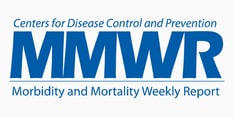Children born to parents with infertility appear to have a slightly increased risk for autism spectrum disorder (ASD), but that link is partly mediated by obstetric and neonatal factors and is probably not attributable to fertility treatments, according to results of a large, newly published study.
In a population-based cohort study that included approximately 1.4 million children, the risk for ASD in offspring was 20% greater in patients with infertility who did not receive fertility treatment compared with patients who conceived without assistance.
The question of whether fertility treatments are associated with autism has been a key research interest, wrote Maria Velez, MD, PhD, associate professor of obstetrics and gynecology at Queen's University in Kingston, Ontario, Canada, and colleagues. About 1 in 6 couples receive an infertility diagnosis, and about 10 million infants worldwide have been born after fertility treatments. ASD symptoms appear as early as age 18 months.
The current findings were published online on November 20 in JAMA Network Open.
Analyzing Mediating Factors
This study was unusual in that it looked at potential mediating factors, such as preeclampsia, cesarean birth, multifetal pregnancy, preterm birth at less than 37 weeks, and severe neonatal morbidity.
The cohort included all single and multifetal live births at 24 or more weeks' gestation in Ontario from 2006 to 2018.
The infertility treatments that the researchers studied were ovulation induction (OI) or intrauterine insemination (IUI) and in vitro fertilization (IVF) or intracytoplasmic sperm injection (ICSI).
The main outcome was an ASD diagnosis, starting at age 18 months. Diagnosis was based on at least two outpatient diagnoses by either a pediatrician or psychiatrist, or at least one diagnosis during a hospitalization.
The researchers found that the incidence rate of ASD per 1000 person-years was 1.93 among live-born children conceived without assistance, 2.49 in the subfertility group (children born to parents with infertility who did not receive treatment), 2.72 in children born after OI or IUI, and 2.71 in children born after IVF or ICSI.
Compared with the unassisted conception reference group, the adjusted hazard ratio for ASD was 1.20 in the subfertility group, 1.21 after OI or IUI, and 1.16 after IVF or ICSI. The corresponding adjusted rate differences per 1000 person-years were 0.30, 0.36, and 0.22.
Male Factors?
The mediating factors played a substantial role, the researchers found.
"For example, following IVF or ICSI, the proportion mediated by cesarean birth was 29%, multifetal pregnancy was 78%, preterm birth was 50%, and severe neonatal morbidity was 25%," they wrote.
"Our results show that OI or IUI and IVF or ICSI do not appear to introduce any measurable risk of ASD, compared with having subfertility alone; rather, underlying infertility might be the driver between parental infertility and ASD in the child, and not the fertility treatments themselves," the authors wrote.
Velez said that the investigators couldn't assess any male factors that might have a role in the link between ASD and infertility because only women were studied. This is one of the limitations of the research. The database also did not include information about race, ethnic background, or origin of the sperm or oocyte, whether they came from the intended parents or a donor.
She also emphasized the need to reduce multiple pregnancies suggested by these results. "In Ontario, we are fortunate to have IVF (public) funding, and one of the intentions of that program is to prioritize single-embryo transfer," she said.
Results "Reassuring"
Commenting on the findings for Medscape, Wendy Kuohung, MD, associate professor of obstetrics and gynecology at Boston University Chobanian & Avedisian School of Medicine, said that including the mediation analysis set this research apart.
Kuohung, who did not participate in the study, added that she found the results "reassuring."
"Autism spectrum disorder is one of those very difficult diagnoses, because no one really knows what causes it, so people are always on the hunt for contributing factors that might increase risk," she pointed out.
Kuohung, a reproductive endocrinologist, added, "We're always concerned about in vitro fertilization and assisted reproduction causing harm, because that's the last thing we want to do when we're trying to help a couple have a baby."
She noted that even children of parents who didn't have infertility treatment had a slightly increased risk for ASD, which suggests that "it's more the subfertility or infertility that's causing the effect, and not necessarily the treatment itself."
The results on mediating factors support continued efforts to reduce multifetal pregnancies, she added, by leaning on technology to help select the best embryo to transplant instead of transplanting multiple embryos.
The results also support targeting ways to help patients improve children's outcomes, she said, such as helping patients with modifiable behaviors that may reduce obesity, which can increase pregnancy risks.
Kuohung noted that the study also highlights the need for better education of patients on what affects their fertility.
The study was funded by the Canadian Institutes of Health Research and received support from ICES, which is funded by an annual grant from the Ontario Ministry of Health and the Ministry of Long-Term Care. One author reported royalties from UpToDate for authorship of materials related to depression and pregnancy outside the submitted work. No other author disclosures were reported. Kuohung reported no relevant financial relationships.
Marcia Frellick is a freelance journalist based in Chicago. She has previously written for the Chicago Tribune,Science News, and Nurse.com, and was an editor at the Chicago Sun-Times, the Cincinnati Enquirer, and the St. Cloud (Minnesota) Times. Follow her on X: @MLFrellick



Comments